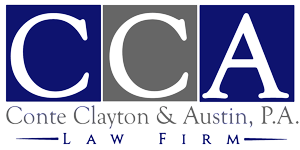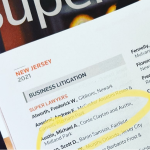Summary of NJ Exec Order 192 for workforce health and safety during pandemic
On October 28, 2020, New Jersey Governor Phil Murphy signed Executive Order No. 192 (the “Order”) into effect. The Order, in the Governor’s words, seeks to “help ensure the health and safety of our workforce” during the ongoing COVID-19 pandemic.
This article seeks to summarize the various requirements of the Order—it is not a replacement for its language and, apart from where quoted directly, constitutes a paraphrasing of same. Accordingly, it is strongly recommended that you review the actual Order and its precise language to ensure compliance.
Executive Order No. 192 can be access through this link:
https://nj.gov/infobank/eo/056murphy/pdf/EO-192.pdf
Effective at 6:00 a.m. on Thursday, November 5, 2020, the Order will require, at minimum and among other things, that “every business, non-profit, and governmental or educational entity…that requires or permits its workforce, whether in part or as a whole, to be physically present at a worksite to perform work” abide by the following:
- Employees of both the private and public sectors to adhere to health and safety protocols put into place to protect non-remote workers.
- At minimum, all employers MUST:
- Require individuals at their worksite to maintain a social distance of, at minimum, six (6) feet from other individuals to the greatest extent possible.
- If maintaining social distance in this manner is not possible, employers shall ensure that affected employees wear a mask and, to the extent possible, install physical barriers between workstations.
- Require employees, customers and visitors to wear cloth or disposable masks when entering the worksite, except where the individual is under two (2) years of age, or where it would be impracticable to wear a face mask, i.e. when eating, drinking, or where a service is being provided by the employer that cannot be provided when a face mask is being worn.
- With specific regard to EMPLOYEES:
- Employees may remove their masks when at their work stations AND are more than six (6) feet apart from other individuals, OR when such employees are alone in a walled office.
- Employers must provide face masks to their employees at the employer’s expense. However, employees may also supply and wear their own surgical grade mask or other more protective mask. If the work performed so requires it, employers remain obligated to provide additional protective equipment to employees.
- With specific regard to EMPLOYEES:
- Employers may deny employees entry to the worksite if the employees decline to wear a face mask, unless doing so would violate State or Federal law.
- Where an employee asserts they cannot wear a mask because of a disability, an employer may, consistent with the Americans with Disabilities Act (“ADA”) and/or New Jersey Law Against Discrimination (“NJLAD”), be required by to provide the employee with a reasonable accommodation unless doing so would be an undue hardship on the employer’s operations.
- An employer may require employees to produce medical documentation supporting claims that they are unable to wear a face mask because of a disability.
- With specific regard to CUSTOMERS and VISITORS:
- An employer may deny a customer or visitor who declines to wear a face mask entry to the worksite, except when doing so would violate State or Federal law.
- Where a customer or visitor asserts they cannot wear a mask because of a disability, an employer may, consistent with the Americans with Disabilities Act (“ADA”), be required by to provide the employee with a reasonable accommodation unless doing so would be an undue hardship on the employer’s operations.
- Where a customer or visitor asserts they cannot wear a mask because of a disability, neither the employer nor its employees shall require such individual to produce medical documentation verifying the stated condition, unless production is otherwise required by State or Federal law.
- These requirements supersede any prior and inconsistent requirements imposed by an Executive Order restricting the ability of an employer to require the production of medical documentation, or to deny entry to a customer, employee, or other visitor to the worksite that refuses to wear a face mask, EXCEPT THAT they shall not apply to employers subject to Executive Order No. 175 (2020) (addressing the re-opening of schools).
- Provide approved sanitization materials (“containing at least 60% alcohol and sanitizing wipes that are approved by the United States Environmental Protection Agency for SARS-CoV-2 virus”) to employees, customers, and visitors at no cost to those individuals) to employees and visitors at no cost to those individuals.
- Make certain that in-person employees practice appropriate hand hygiene and provide such employees with sufficient break time for that purpose, as well as access to such facilities, which must be adequate for these purposes. Employers may also adopt policies requiring the use of gloves by employees; should they do so, employers must provide them at their own cost.
- Routinely clean and disinfect all high-traffic/high-touch areas of the worksite in accordance with current guidelines of the Department of Health (“DOH”) and Center for Disease Control (“CDC”) “including, but not limited to, restrooms, hand rails, door knobs, other common surfaces, safety equipment, and other frequently touched surfaces.”
- Perform daily and pre-shift health checks, such as visual symptom checking, temperature taking, self-assessment guidelines, and/or health/symptom checklists, prior to each shift, and consistent with the current guidelines of the CDC.
- In doing so, employers must ensure these practices are consistent with the confidentiality requirements of the Americans with Disability Act (“ADA”), New Jersey Law Against Discrimination (“NJLAD”) and any other applicable laws, as well as consistent with any guidance from the Equal Employment Opportunity Commission (“EEOC”) and the New Jersey Division on Civil Rights.
- Exclude employees that are sick from the worksite while fully complying with all applicable leave laws, such as the New Jersey Earned Sick Leave Law, New Jersey Family Leave Act, J.S.A. 34:11D-12 and/or Federal leave.
- To that effect, employers must also immediately separate and send home employees who appear to have symptoms, as defined by the CDC, consistent with COVID-19 illness upon arrival at work or who become sick during the day.
- Promptly and appropriately inform employees of any confirmed or otherwise known exposure to COVID-19 at the worksite, consistent with the confidentiality requirements of the ADA and any other applicable laws, as well as consistent with guidance from the EEOC.
- Following such incidents, employers must “clean and disinfect the worksite in accordance with CDC guidelines and continue to follow guidelines and directives issued by the New Jersey DOH, the CDC and the Occupational Safety and Health Administration, as applicable, for maintaining a clean, safe and healthy work environment.”
- The above requirements DO NOT apply when:
- “They interfere with the discharge of the operational duties of first responders, emergency management personnel, emergency dispatchers, health care personnel, public health personnel, court personnel, law enforcement and corrections personnel, hazardous materials responders, transit workers, child protection and child welfare personnel, housing and shelter personnel, military employees, and governmental employees engaged in emergency response activities;” OR
- “[T]o the United States government, or to religious institutions to the extent that application of the health and safety protocols would prohibit the free exercise of religion.”
At this time, there is no private right of action for alleged violations of the Order or its various requirements. In such instances, alleged violations of the Order may be reported to State agencies such as PEOSH for consideration, with such alleged violations to be investigated by the DOH and/or the Department of Labor and Workforce Development DOLWD and/or, where necessary, other state and federal agencies. Penalties for violations may include, but are not limited to, closure of a business by the DOH.
The requirements of the Order should not be considered exhaustive and employers should look to implement other reasonable precautions to ensure the safety and well-being of their employees, clients, and any visitors to the worksite while ensuring same do not run afoul of the Order or any other laws. For example, an employer should consider the provision of hypo-allergenic or alternative-material (but still adequately protective) masks and/or gloves so that compliance with the Order is achieved in an inclusive manner.
Additionally, employers should take heed to remain current with health and safety guidelines issued by state and federal agencies, including but not limited to the DOH, CDC, Public Employees Occupational Safety and Health (“PEOSH”), and the Department of Labor and Workforce Development (“DOLWD”).
Most importantly, employers should maintain consistent, open, and mutually beneficial lines of communication with all employees, customers, and visitors. The best way to navigate these difficult times is by working together.
Stay safe and be well!






